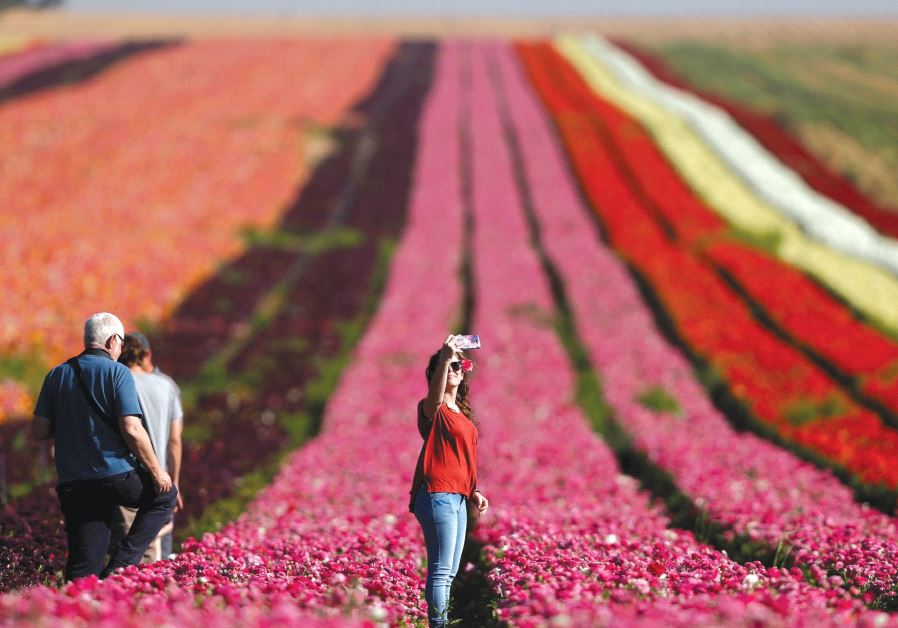In a happy state
Political corruption. Drought. Fires. Jewish-Arab tensions; intra-religious tensions; religious-secular tensions; Ashkenazi-Sephardi tensions.
 WOMAN takes a selfie in a buttercup field near Kibbutz Nir Yitzhak, outside the Gaza Strip, last April
WOMAN takes a selfie in a buttercup field near Kibbutz Nir Yitzhak, outside the Gaza Strip, last April